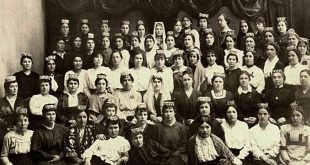This book, an historical survey of the Islamic injunction to command right and forbid wrong, a biographical exposé of Muslims who understood and practiced this principle, and a bibliographical reference, is a welcome and timely addition to the literature on Islamic thought.
Detailed and extensive, yet not particularly difficult to read, it is equally accessible to all readers. Its main theme is the basic Islamic individual and communal duty to stop other people from doing wrong. Cook contends that few cultures have paid such meticulous concern to this matter, despite the issue’s intelligibility in just about any culture.
What kind of duty do we have to try to stop other people doing wrong? The question is intelligible in just about any culture, but few of them seek to answer it in a rigourous fashion. The most striking exception is found in the Islamic tradition, where ‘commanding right’ and ‘forbidding wrong’ is a central moral tenet already mentioned in the Koran. As an historian of Islam whose research has ranged widely over space and time, Michael Cook is well placed to interpret this complex subject. His book represents the first sustained attempt to map the history of Islamic reflection on this obligation. It covers the origins of Muslim thinking about ‘forbidding wrong’, the relevant doctrinal developments over the centuries, and its significance in Sunni and Shi’ite thought today. In this way the book contributes to the understanding of Islamic thought, its relevance to contemporary Islamic politics and ideology, and raises fundamental questions for the comparative study of ethics.
Table of Contents
Part I.
Introduction:
- The goldsmith of Marw;
- Koran and Koranic exegesis;
A: The Koran without the exegetes
B: Koranic exegesis
- Tradition;
A: The ‘three modes’ tradition
B: Other traditions of positive tendency
C: Traditions of negative tendency
D: Conclusion
- Biographical literature about early Muslims;
A: Introduction
B: Confronting the state
C: Confronting society
D: Defending privacy
E: Final remarks
Part II. The Hanbalites:
- Ibn Hanbal;
A: Introduction
B: Varieties of offence
C: Contexts of offences
D: Responses to offences
E: The state
F: Conclusion
- The Hanbalites of Baghdad;
A: Introduction
B: Hanbalite practice
C: Hanbalite theory
D: Theory and practice
- The Hanbalites of Damascus;
A: ntroduction
B: bn Taymiyya and forbidding wrong
C: Ibn Taymiyya’s politics
D: The Damascene Hanbalites after Ibn Taymiyya
- The Hanbalites of Najd;
A: Introduction
B: The First Saudi State
C: The Second Saudi State
D: The third Saudi State
Part III. The Mu’tazilities and Shi’ites:
- The Mu’tazilites;
A: Early Mutazilite doctrine
B: Classical Mutazilism: the doctrine of Mānkdīm
C: Classical Mutazilism: rival doctrines
- The Zaydis;
A: Early Zaydı ̄ doctrine
B: Zaydı ̄ activism
C: The Zaydi legal tradition
D: The Zaydi–Mutazilite symbiosis
E: The Sunnisation of Zaydism
- The Imamis;
A: Imami tradition
B: The classical Imami scholars
C: The later Imami scholars
D: Excursus: the Ismaili
Part IV. Other Sects and Schools:
- The Hanafis;
A: The Hanafis before the Ottomans
B: The commentators of the Ottoman period
C: Birgili and his heirs
D: The Hanafis in the late Ottoman period
E: Excursus: Jaṣṣāṣ
- The Shafi’ites;
A: The Shafiites before Ghazzali
B: The Shafiites after Ghazzali
- The Malikis;
A: Early Maliki doctrine
B: Later Maliki doctrine
C: Maliki practice
- The Ibadis;
A: The western Ibadis
B: the eastern Ibadis
- Ghazzali;
A: The doctrine of Ghazzali: a summary
B: The achievement of Ghazzali
C: The legacy of Ghazzali
D: Excursus: the Sufi
- Classical Islam in retrospect;
A: The politics of forbidding wrong
B: Privacy and forbidding wrong
C: The social context of forbidding wrong
D: The scholars and the wider society
Part V. Beyond Classical Islam:
- Modern Islamic developments;
A: Developments in Sunni Islam
B: Developments in Imami Shiism
C: Sunnis and Imami Shiites compared
- Origins and comparisons;
A: The Jahiliyya
B: Monotheist parallels
C: Non-monotheist parallels
D: The distinctiveness of the Islamic case
- Conclusion.
A: Rescue and forbidding wrong
B: Right and wrong
Bibliographic Information
Title: Commanding Right and Forbidding Wrong in Islamic Thought
Author:
Publisher: Cambridge University Press
Language: English
Length: 702 pages
ISBN: 9780511033568
Pub. Date: 2000
 Ijtihad Network Being Wise and Faithful Muslim in the Contemporary World
Ijtihad Network Being Wise and Faithful Muslim in the Contemporary World
